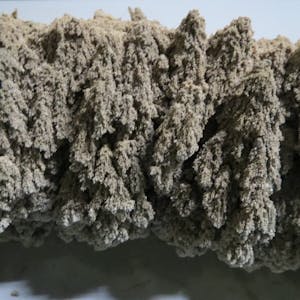The basic idea behind this MOOC, is to present recent data on fuel characterization, slagging, fouling, corrosion, and trace element transformations, in a course that can be readily provided for students and industry people.This ensures understanding and application of the research, and provides the students and industry with a forum for discussion of the very latest research results, as well as feedback from industry to the research group at DTU, on important new research subjects in the field.
The specific aim of the MOOC, is that students will be able to;
Explain basic physical and chemical differences between solid fuels like coal, biomass, waste etc., be able to characterize solid fuels, and to interpret fuel analyses of them
Interpret and utilize data from advanced fuel and ash analyses (SEM, DTA/TGA, chemical fractionation, ash melting temperatures)
Describe chemically and physically, how critical ash-forming elements are released to the gas phase, the mechanisms for formation of aerosols and fly ash particles, and explain how ash is transported from bulk gas to heat transfer surfaces
Quantify the processes of deposit build-up, sintering and shedding
Explain the fundamentals of high-temperature corrosion in thermal fuel conversion systems
Can calculate viscosities as a function of temperature and composition, temperature profiles in a deposit, rates of deposit build-up and sintering, as well as porosity changes vs. time.
Explain basic physical and chemical differences between solid fuels like coal, biomass, waste etc., and interpret fuel analyses of them
Describe critical ash-forming element are release, mechanisms for formation of aerosols and fly ash particles, and ash transport
Quantify the processes of deposit build-up, sintering and shedding
Explain the fundamentals of high-temperature corrosion in thermal fuel conversion systems
Syllabus
Syllabus - What you will learn from this course
Week 1
Brief MOOC Introduction and Incitement for Following This
Week 2
Fuel and Ash Chemistry and Characterization
Week 3
Release of Critical Ash-Forming Elements
Week 4
Formation of Fly Ash and Aerosols
Week 5
Transport and Adhesion of Ash Particles
Week 6
Deposit Build-Up, Consolidation and Shedding
Week 7
High-Temperature Cl-Corrosion
Week 8
Use of additives to Minimize Deposit Formation and High-Temperature Corrosion
Week 9
Danish Case-Studies on Ash and Deposit Formation
FAQ
When will I have access to the lectures and assignments?
Access to lectures and assignments depends on your type of enrollment. If you take a course in audit mode, you will be able to see most course materials for free. To access graded assignments and to earn a Certificate, you will need to purchase the Certificate experience, during or after your audit. If you don't see the audit option:
What will I get if I purchase the Certificate?
When you purchase a Certificate you get access to all course materials, including graded assignments. Upon completing the course, your electronic Certificate will be added to your Accomplishments page - from there, you can print your Certificate or add it to your LinkedIn profile. If you only want to read and view the course content, you can audit the course for free.
Is financial aid available?
Yes. In select learning programs, you can apply for financial aid or a scholarship if you can’t afford the enrollment fee. If fin aid or scholarship is available for your learning program selection, you’ll find a link to apply on the description page.
Reviews
This course was informative, there were a lot of things I needed to review and learn more about as I am not quite familiar with various terms included in the course materials.
Very informative and intriguing. The slides quality was phenomenal and the voice pitch was so communicative.
